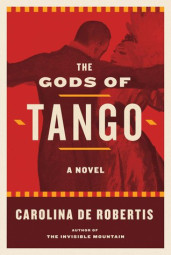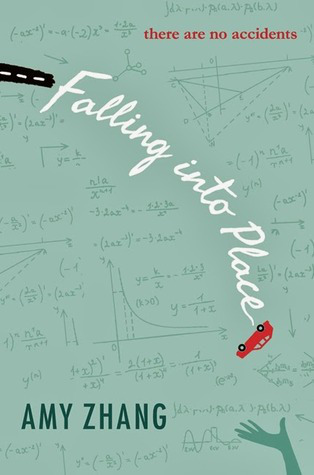The New Title Tuesday recommendation today, Radical Hope edited by Carolina De Robertis is in honor of the dreamers and free thinkers who officially began this nation in 1776. Each person in the United States, regardless of when they arrived, carry the ideological DNA of our founding fathers and mothers. We expect justice. We demand equality. We are driven to make our country live up to the mission set in motion by the signers of the Declaration.
Fortunately, the message is still being debated and crafted. Evidence of our continued greatness as a nation is not found in the words of those who hate but greatness begins and is found through hope. Fortunately, Carolina De Robertis asked for fellow writers to join her in creating “a collection of love letters in response to these political times.”
Publisher’s Summary: Radical Hope is a collection of letters—to ancestors, to children five generations from now, to strangers in grocery lines, to any and all who feel weary and discouraged—written by award-winning novelists, poets, political thinkers, and activists. Provocative and inspiring, Radical Hope offers readers a kaleidoscopic view of the love and courage needed to navigate this time of upheaval, uncertainty, and fear, in view of the recent US presidential election.
Including letters by Junot Díaz, Alicia Garza, Roxana Robinson, Lisa See, Jewelle Gomez, Hari Kunzru, Faith Adiele, Parnaz Foroutan, Chip Livingston, Mohja Kahf, Achy Obejas, Viet Thanh Nguyen, Cherríe Moraga, Kate Schatz, Boris Fishman, Karen Joy Fowler, Elmaz Abinader, Aya de León, Jane Smiley, Luis Alberto Urrea, Mona Eltahawy, Jeff Chang, Claire Messud, Meredith Russo, Reyna Grande, Katie Kitamura, iO Tillett Wright, Francisco Goldman, Celeste Ng, Peter Orner, and Cristina García.
As we celebrate the 4th of July, we can take pride that our nation is the progeny of the ambitious idealism of our forebears. Today celebrates the dissidence and passion of those such as Adams, Jefferson, and Franklin and their bravery to create and sign the Declaration of Independence.
But we must remember to continue in their footsteps and fight to sustain the outrageous notion of equality and a government of and by the people – a place where inalienable rights are protected for all citizens.
The ‘love letters’ collected in Radical Hope are a lighthouse beacon pointing inward at the infinite ingenuity and artistry of our citizens but also illuminates our individual and collective unjust behaviors and bigotry. The colonies and fledgling country were not exactly a paradise of equality and fairness.
Radical Hope also shines that beacon toward a brighter future where we can love, vote, practice religion, speak truth, and pursue happiness while knowing that achieving it is not the end goal. The end goal is to live up to the promise of democracy.
Excerpt from the Declaration of Independence:
… all experience hath shewn that mankind are more disposed to suffer, while evils are sufferable than to right themselves by abolishing the forms to which they are accustomed. But when a long train of abuses and usurpations, pursuing invariably the same Object evinces a design to reduce them under absolute Despotism, it is their right, it is their duty, to throw off such Government, and to provide new Guards for their future security.
Happy Reading, Susan C.
Also by De Robertis
 The Gods of Tango February 1913. Seventeen-year-old Leda, clutching a suitcase and her father’s cherished violin, leaves her small Italian village for a new home (and husband) halfway across the world in Argentina. Upon her arrival in Buenos Aires, Leda is shocked to find that her bridegroom has been killed. Unable to fathom the idea of returning home, she remains in this unfamiliar city, living in a commune, without friends or family, on the brink of destitution. She finally acts on a passion she has kept secret for years: mastering the violin.
The Gods of Tango February 1913. Seventeen-year-old Leda, clutching a suitcase and her father’s cherished violin, leaves her small Italian village for a new home (and husband) halfway across the world in Argentina. Upon her arrival in Buenos Aires, Leda is shocked to find that her bridegroom has been killed. Unable to fathom the idea of returning home, she remains in this unfamiliar city, living in a commune, without friends or family, on the brink of destitution. She finally acts on a passion she has kept secret for years: mastering the violin.
 Perla Perla Correa grew up a privileged only child in Buenos Aires with a polished yet aloof mother and a straight-laced Naval officer father, whose profession she learned early not to disclose in a country still reeling from the abuses perpetrated by the deposed military dictatorship. Although Perla understands that her parents were on the wrong side of the conflict, her love for her Papá is unconditional. But when she is startled by an uninvited visitor, she begins a journey that will force her to confront the unease she has long suppressed, and make a wrenching decision about who she is, and will become.
Perla Perla Correa grew up a privileged only child in Buenos Aires with a polished yet aloof mother and a straight-laced Naval officer father, whose profession she learned early not to disclose in a country still reeling from the abuses perpetrated by the deposed military dictatorship. Although Perla understands that her parents were on the wrong side of the conflict, her love for her Papá is unconditional. But when she is startled by an uninvited visitor, she begins a journey that will force her to confront the unease she has long suppressed, and make a wrenching decision about who she is, and will become.
 The Invisible Mountain On the first day of the year 1900, a small town deep in the Uruguayan countryside gathers to witness a miracle — the mysterious reappearance of Pajarita, a lost infant who will grow up to begin a lineage of fiercely independent women in the capital, Montevideo. Her daughter, Eva, a fragile yet ferociously stubborn beauty intent on becoming a poet, overcomes an early, shattering betrayal to embark on a most unconventional path. And Eva’s daughter, Salomé, awakens to both her sensuality and political convictions amidst the violent turmoil of the late 1960s. From Perón’s glittering Buenos Aires to the rustic hills of Rio de Janeiro, from the haven of a Montevideo butchershop to U.S. embassy halls, The Invisible Mountain celebrates a nation’s spirit, the will to survive in the most desperate of circumstances, and the fierce and complex connections between mother and daughter.
The Invisible Mountain On the first day of the year 1900, a small town deep in the Uruguayan countryside gathers to witness a miracle — the mysterious reappearance of Pajarita, a lost infant who will grow up to begin a lineage of fiercely independent women in the capital, Montevideo. Her daughter, Eva, a fragile yet ferociously stubborn beauty intent on becoming a poet, overcomes an early, shattering betrayal to embark on a most unconventional path. And Eva’s daughter, Salomé, awakens to both her sensuality and political convictions amidst the violent turmoil of the late 1960s. From Perón’s glittering Buenos Aires to the rustic hills of Rio de Janeiro, from the haven of a Montevideo butchershop to U.S. embassy halls, The Invisible Mountain celebrates a nation’s spirit, the will to survive in the most desperate of circumstances, and the fierce and complex connections between mother and daughter.





